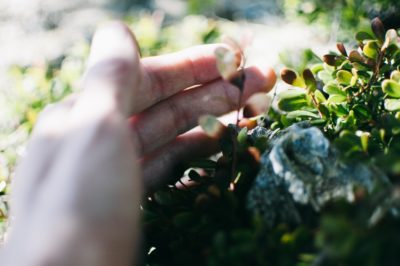What Brings Us In

The Continuing Search for Connection
By Roman R
I’m over six years into recovery and have been swamped with contradictory feelings. I feel grateful to no longer feel as much of a draw towards thinking about the next time I can get drunk or find weed. If I see young people in public going from bar to bar talking loudly, not paying attention to personal space, I wince knowing that was once me. I do feel the sense of missing out when I hear laughter or sense genuine bonding happening over drinks, especially as the pandemic has moved me to become more isolated.
I’m flooded with memories and realizations of my past. Trying to have compassion for my younger self and wishing I could be there as I am now, to hold a younger me through the lonely times. When I was 26, I left a job I’d had for three years. It’d been my first full time, long term job with benefits I’d had since graduating college in 2002. I was living in New York City, still recovering from the previous autumn with government officials embracing a new strain of xenophobia and militarism. There has never been an easy to time to be authentic and/or “make it as an artist,” and with people on edge, I imagine it was even less so then.
The job I’d had was at an advertising agency and one of our clients was Crown Royal. So yes, at times we would have alcohol around the office. Not to mention monthly gatherings at local bars where the company had an open tab. Instead of supporting workers by raising our wages or improving working conditions, we were given unlimited alcohol on that one special night a month. I don’t have to say more about that to show how destructive and coercive some workplace environments can be with fostering addiction and dependency on alcohol.
In the eight months between when I quit the job and decided to transition, every single day I had drank alcohol and/or smoked pot. I kept a tally as if I knew I was working through something. Looking back I could not have been able to stay at that job and transition. Being mocked for simply keeping a vegan diet was enough to know folks would not be able to wrap their heads around me using a different name and going on hormone replacement therapy.
While working, I was enrolled in improv classes, attended shows, performed stand up, made it to the gym a few days a week. It’s a way that someone in their twenties with that energy could do that now seems unthinkable. I kept myself so busy that I wouldn’t have the time to really face myself. After leaving the job, I began using every day so I would not have to sit with my Feelings.
While I was able to stop for a bit after coming to terms with myself, it was transphobic reactions from people that opened up fresh wounds that made it easy to start drinking heavily again. I have compassion for myself, in that I was to a degree self medicating. And I know if we lived in a society that ensured people had their basic needs met (housing and health care as a start), I would not have gone back to drinking and using with such force. Not having a stable place to stay for months at a time over the course of several years and floundering in medical debt crushed the self esteem and hope I was trying to hold onto.
And buying a few drinks or a couple grams of weed is far more affordable than a security deposit. Not being in the present could momentarily help soothe my sense of sadness and grief. I was so happy and at peace as being able to live authentically. It was the transphobia from certain health care providers and society as a whole that made living authentically become that much more arduous.
I look back and can blame behavior on being drunk and/or high as if to distance myself from it. Even though at the end of the day, I said and did certain things I was not proud of – I feel less shame around it. “Oh well, I was young and I’d been drinking…” Now when I make mistakes or say something I regret I have to accept that it is me and me alone who is responsible.
Drinking and drug use are not uncommon in the stand up/improv/art world and while part of this could be easily connected to the idea of how difficult it can be to be an artist in a capitalist and punitive country, alcohol is so incredibly ubiquitous. So much that the majority of the venues where one performs (theaters, clubs, bars) sell alcohol. Often times performers are not paid, except for with drink tickets. As someone who often interned in exchange for classes, I was often the one serving the beer and wine. I do not think of these venues serving alcohol as doing so because of malevolent intent – it’s the reality of having to keep doors open, as art spaces are notoriously underfunded.
There’s the belief that the opposite of addiction is connection. And connection can be so hard to establish if we’re continually taught we are different, if there’s a lack of safe and sober spaces, if we’re so busy trying to make ends meet that we are unable to be in the present moment.
Renewing God’s Love

By Dee H
Why do I turn from the light?
Why is a happy day followed
With a dark night of the soul?
Is my God too bright?
Why do I need my shadow?
Many people have shown me
Though awful faces seem shallow
To have an opinion of their own
They have claimed their rights
As branches of the same tree
An Earth God has bestowed
Upon those who are in power
It seems as they in their might
Cause me to in weakness wallow
In much self-pity I suffer so
No one is coming to shower me
With love’s sobriety and kindness
It is up to me to care for others
To know a home where I can be
Aware that loving blessings flow
Faithful—comfortable with myself
There is a place for each of you
Providing space for this to be true
Allows me to renew God’s love
With you friends that love me too
Wounded Healer

By John W
Since before he had his first taste
Since before his wound was inflicted
He had longed to be in that number,
Had longed to come marching in
He was no saint, of this he was sure
About this the years of abuse left no doubt
Shattered dreams, broken promises, abandoned hope
Each made clear his failure was no mistake
Until he finally heard the message
Of all things, suggestions from a drunk
“Work the Steps and your life will change”
Were empty words, not “hope” for him
He of course was different, not like “them”
So nothing that worked for them
Would heal his wounds
These would take him to his grave
Or so he had thought, until time had passed
With each sober day, the wounds healed
Though scars ran deep, he still got better
As they had foretold, his life did change.
From the wreckage had risen the Phoenix
The skeletons which filled his closet
Now were laid bare in brilliant reflection
Their fear and foreboding no longer a threat
This lesson had been hard taught
But it was a lesson he had learned,
A lesson he had infused into his marrow.
It had become a part of him, a vital part of him
With each novice he was blessed to meet
With each newcomer he got to sponsor
He shared this part of him, bared his soul to them
Shared with them, this experience of his.
To more than some, sadly not all,
The attraction worked, the message was heard
A simple formula, one drunk to another,
Had worked where only failure had been before.
As unlikely as the formula had been, so too
Had he in the most unlikely way, become a Healer,
He was a Wounded Healer, His diseased past,
Now the prescription for a healthy new life.
Speak Me the Steps

By Christine R.
In his final days, my friend Paul B. spent a lot of time in the hospital. During one of those overnight stays, at around 2 a.m. the night nurse came in. Paul had terrible insomnia and so was wide awake when she entered.
The nurse said, “I understand you are a friend of Bill W. We have a man down the hall who would like you to ‘Speak him the Steps.’” Unsure of what he was getting into, nonetheless Paul said, “Sure. I’ll be right there.” Dressed in his bathrobe, he padded down the chilly hallway after the nurse. Soon, Paul found himself at the bedside of what appeared to be a dying man. After the nurse left, the patient quietly said, “Speak me the Steps.” With a lot of time and meetings under his belt, Paul recited the Steps. Holding this man’s hand, Paul relayed the answers for countless alcoholics, as one after another he “spoke the Steps.” Within a few hours, the man was dead. Paul allowed as how probably he was the last person the man saw. The Steps, the last thing he heard.
Over the years, I remember Paul’s story as I hear the same solution applied many a time. Like the other day, a father was working to resolve the difficulties his son was having. The answer upon which they both could agree came when the father “spoke the Steps.” Starting with Step One, all about the powerlessness and the unmanageability of the son’s situation. Followed by Steps Two and Three, bringing a return to sanity along with a decision to find the answers from a Power greater than himself—a Power attainable to us all.
On Sunday, a sponsee called while I was driving. Pulling over, I listened to the unmanageability. More than a listener, she needed a “solutioner.” By “speaking the Steps” she was guided to Step Two as we talked about finding a Power greater than herself. And where was that Power? Answer: Meetings. Phone calls. Service. Listening in meditation. Prayer. As she sought that Power on the phone, she came to realize that Power surrounded her all day. With this Source, she was placed on a path where the tasks before her were either accomplished or well on their way.
This interchange is reminiscent of the Working with Others (page 99), where it says, “The most incompatible people discover they have a basis upon which they can meet.” Or page 17 in the chapter There Is A Solution: “We have a way out on which we can absolutely agree, and upon which we can join in brotherly and harmonious action.”
When newcomers call, I let them know, “You just did a perfect Second Step.” Nearly always, their reply is, “Huh?” To which comes the answer, “By reaching out with a phone call, you are looking for a Power greater than yourself. You could have chosen to drink. Instead, you chose to pick up the phone and find a different Source.”
Speaking the Steps is more than speaking them. It means living them, so they become part of you. Seeing them as user-friendly. Like a chest of drawers, you can pull one out for any occasion. As an example, our friend T.K. used to say, “We live in Step 11, seeking God’s direction and power. When we screw up, we have Step 10 to clean up the mess. When we have extra energy, we have Step 12 to give back to this Program and pay forward what saved our lives.” By working a strong Step 12 with another alcoholic, we return to Step One. We remember where we came from. And so we come full circle.
Round and round we work the Steps. We say them. We speak them. We work them. We live them. Like lights on a Christmas tree, rising higher with new awareness and new perspective. Thus, the Steps become part of our day-to-day experience. Like fabric interwoven, indelibly ingrained. Were I to have a last wish for my last hour, the wish would be to hear someone at my bedside “Speak me the Steps.”
That Little Boy was not a Jerk

What Went Wrong Between Then and Now
By Rick R.
I was deeply touched by what I heard a young man at a meeting share about planning a party for his mother. He started to search through some old pictures and came up with photos of himself when he was three years old. Looking at them, he saw the innocence in his face at that young age and he said to himself: “That little boy was not a jerk”. His next question to himself was: “What went wrong between then and now”? I believe that everyone in the room could identify with him.
Most of us were perfect when we were born but something influences us in those formative years that set the tone for the direction that our thinking would take. The childlike innocence gave way to the neediness and insecurity that alcoholics seem to have in common. The unworthiness tapes run rampant in our heads telling us that we couldn’t make it without cutting corners and doing things that brought on guilt and shame, then we were plagued by our conscience. That little child was damaged and scared on the inside in a way that nothing could bring him peace, until he discovered the elixir in a bottle. When that failed him, he showed up in the rooms of Alcoholics Anonymous (A.A.) trying to make sense of it all.
When I look around the room at an A.A. meeting, it seems like we all look about the same on the surface, with a few minor differences due to age and generational things. We’re all made up of hair, eyeballs, elbows and feet, and things like that. Most of us follow dress codes and courtesy standards. We’re not that much different on the surface. Our real problems consume us on the inside and we spend years trying to convince the world around us that we are as good as they are while, inside, loathing what we had become. It’s hard to convince a drunk that the child that he was at three years old is still inside of him and can resurface if he desperately wants it.
Suppose for a moment that we all woke up this morning with amnesia. We would all be the same. The only thing that makes us different is what is going on between our ears and we drag that with us everywhere we go. I discovered years ago that my brain, with the aid of my ego, was lying to me and that I wasn’t that hopeless loser that I thought I was. I also discovered that most of that damage could be reversed and that I could—over a period of time—develop an approach to a life far superior to anything I could have imagined. The hardest thing that stands in the way of this is my inability to surrender and to trust the process. With the help of the group, slowly letting go of some of the old ideas, you can start seeing the results in a short period of time and it will be exhilarating. However, we didn’t get this way overnight and it will be a slow journey, but a very exciting and happy experience. An old, departed friend used to say, “Your hair will be a different color before you know who you are.” To me that means with the help of the A.A. Program, patiently changing some of those old habits that cause us grief and replacing them with unselfish deeds that start to heal our conscience. I’ve heard it said, “Try it for 90 days and if you don’t like what we have to offer, we will gladly refund your misery”. What have you got to lose? Now, let’s go find that kid and give him a second chance.


